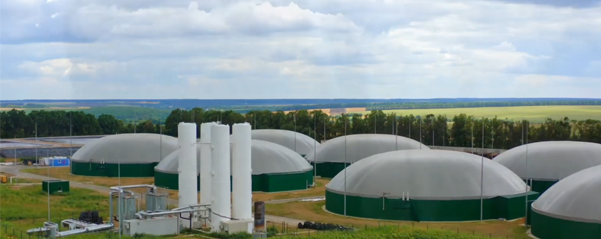October 24, 2023
Download the position paper | Download this press release
The European Commission’s REPowerEU has identified Biomethane as a renewable lever for Europe’s decarbonisation and security of supply. But how to kick-start its development in the most cost-effective and efficient way? GIE’s position paper shed light on how natural gas and biomethane’s synergies will help this renewable fuel to ramp up.

The paper is divided into 3 main focuses:
• Infrastructure development
• Sector integration
• Barriers to development
The paper delves into the pivotal role that biomethane plays in the transition to a sustainable and low-carbon energy system. As a renewable gas available in the European market, biomethane has the potential to replace a significant portion of natural gas supplies, contributing to a greener and more efficient energy landscape. It aligns with the goals set by the European Commission in the REPowerEU Plan, which aims to achieve an annual production target of 35 bcm of biomethane by 2030.
GIE, dedicated to supporting this transition, has established a specialised Working Group on Biomethane (WG) in 2022 after an Open Door Lab with central stakeholders. Aiming to enhance further the cooperation among its members on this crucial topic, the association will establish a dedicated area in 2024.
1. Establishing a level playing field across renewable energy sources.
2. Creating an EU-wide certification scheme for cross-border trade in renewable gas.
3. Developing a fair regulatory framework for renewable gas technologies and connections.
4. Eliminating cross-border inhibitors by promoting quality and standards review.
5. Raising awareness of the necessity and benefits of renewable gas.
👉 Delve into the details by reading the full position paper here.
Sector coupling and synergies with other sectors:
The paper highlights how biomethane’s unique characteristics enable the efficient integration of renewable energy sources into various sectors, such as residential, transport, industry, and commercial/trade. Biomethane’s flexibility in production and consumption makes it a dependable energy source, contributing to the decarbonisation of various sectors.
Infrastructure development:
The paper emphasises that biomethane can be seamlessly injected into the existing gas grid, utilising the current infrastructure without significant new investments. It explores the challenges and solutions for adapting the gas infrastructure to accommodate higher biomethane volumes, ultimately supporting the ambitious production targets of REPowerEU.
Barriers to development:
The position paper identifies economic, technical, regulatory, and social barriers to biomethane development. It emphasises the importance of long-term regulatory frameworks, recognition of externalities, and the need for community engagement and education to overcome these challenges.
“As a proud representative of Denmark, where biomethane has already established itself as a significant contributor to our energy system, I am thrilled to see its potential for the entire European energy landscape. Biomethane is more than just a renewable gas; it’s a cornerstone of a sustainable, low-carbon future. With the right policies and collective efforts, we can further integrate biomethane into our energy systems, ensuring a greener, more reliable, and cost-efficient energy future for Europe.”
Torben Brabo, GIE President
“We are committed to supporting the REPowerEU 35 bcm biomethane target and will continue collaborating with relevant stakeholders, exploring new technologies and participating in developing regulatory frameworks and market conditions. This paper recognises biomethane’s essential role in the energy transition and gas infrastructure’s capacity to operate it. The challenges presented in this recommendation must be addressed to enhance biomethane’s potential.”
Boyana Achovski, GIE Secretary General
Gas Infrastructure Europe (GIE) is the association representing the interests of European gas infrastructure operators active in gas transmission, gas storage and Liquefied Natural Gas (LNG) regasification. GIE is a trusted partner of European institutions, regulatory bodies and industry stakeholders. It is based in Brussels, the heart of European policymaking. GIE currently represents 70 member companies from 26 countries. GIE’s vision is that by 2050, the gas infrastructure will be the backbone of the new innovative energy system, allowing European citizens to benefit from a secure, efficient and sustainable energy supply.
Downloads















































